Opinion
Dr. Ajantha Ranasinghe:

The Unsurpassable Wordsmith
by SVD Kesarralal Gunasekera
‘What a beautiful and remarkable human being’ is what comes to my mind every time I think of Dr. Ajantha Ranasinghe. He was an award-winning lyricist, a journalist, a writer and a critic. But what really is etched in my mind is what he was as a human being. There is so much to learn from his life. I am not appreciating him solely because he was a popular personality but because of his unassuming personality that made our lives so complete.
Lyricist par excellence
Dr. Ajantha was a fantastic lyricist. His style, as well as the varieties, are unique. He has been a lyricist for the Sinhala cinema for decades. As a young student, when we watched films ‘Lyrics: Ajantha Ranasinghe’ would appear on the big screen. From ‘Gamey Kopi Kade’ (Sanath Nandasiri) type of upbeat songs, which creates a series of images in our minds about a small coffee stall in a village, to ’Paarami Dam Puramu api denna’ (Neela Wickramasinghe) which speaks about affection of siblings, and to ‘Kalpana lowa mal waney’ (Abeywardhana Balasooriya) which expresses the depths of romantic love, Dr. Ajantha had the ability to select the words suitable for each singer. He had a rich vocabulary from which he culled the right words and turned it into a song.
Not only did he bring Buddhist philosophy into his songs, in ‘Mey Ayurin Api Sansarey’ (T M Jayaratne), but he was equally brilliant in writing “Bodhu Gee” which touched the souls of the people. ‘Nirvana Swarna Dwarayen’ (Sanath Nandasiri) and ‘Uththama Muni Dalada wadammana’ (Dharmadasa Walpola) are two such songs which are still so popular.
Film songs
In the golden era of the Sinhala Cinema, his songs made each film unforgettable. songs were the thread that kept the entire film together. ‘Ran Kenden Banda’ (Duhulu Malak) is a fine example of packaging the entire film in a song. ‘Mala Gira’ and ‘Dedunnen Ena Samanalune’ (Vasanthey Dawasak) are still popular and memorable. In the later years, he wrote songs like ‘ Villuda Punchi Depa’ (Mamai Raja) which were ideal for the movie. Dr. Ajantha was able to relate to the storyline. His lyrics were the icing on the cake. It adorned the film and enhanced its quality. No other lyricist could even match that capability. Dr. Ajantha has contributed over 300 songs to the Sinhala cinema, starting from 1976.
Love songs
Generations of lovers have enjoyed his songs for their ability to pull the heart strings. We all remember the song ‘May Mai Gaha Yata’ (Milton Mallawarachchi) which was based on personal experience. ‘Adara Samarum’ (Sanath Nandasiri). He brought his experiences and makes them universal. He was someone who loved deeply and was able to relate to human feelings. ‘Suwanda Deni’ (Rookantha Gunatillake) brings out the uneasy, delightful feeling of being in love. Undoubtedly, this song showed the world what a great singer Rookantha is, as the song required the singer to be so disciplined to deliver the feelings embedded. Love songs are difficult to write unless one has both received and given love in abundance to be able to express it. Also, one must have the language skill and the proficiency to express it in words. Dr. Ajantha belonged to that era of people who loved and were able to share that love.
The Humanist
I have spent time with Dr. Ajantha at various gatherings. He had the mildest of manners. He would address persons as ‘Mahathmaya’ all the time. Irrespective of how close we were, he addressed me as ‘ mahathmaya’ or Mr. Gunasekera. He was someone who always gave respect to others. During these occasions, he would narrate so many stories. He was a warehouse of anecdotes that drew everyone’s attention. Even when we gathered at his home, he recalled story after story about incidents of the past, homourous events and also stories about famous personalities. None of the stories were to slander anyone, but to appreciate and enjoy.
I still recall a story that he said about late HR Jothipala. He said that a cigarette company approached HR Jothipala once, requesting him to appear in a cigarette advertisement.The opportunity would have given him a lot of money for endorsing a certain brand. But his response was ‘Just because I smoke, why should I ask others also to smoke?’. Thus, he declined the offer.
Peacemaker
As a human being, one of the greatest things we can do for others is to create peace. Dr. Ajantha had the natural talent and the heart to do so. There was a time, in history, when Dharmadasa Walpola had had a fall out with the SLBC. He had been so disheartened that he had given up singing and had opened a small shop. When Dr. Ajantha had penned the song ‘Uththama Muni Dalada’ and shown it to Sanath Nandasiri, he has said that if there is anyone who can sing this song, it is none other than Dharmadasa Walpola. Dr. Ajantha had gone in search of this fabulous singer who refused to sing the song. Dr. Ajantha, knowing the talent that Dharmadasa had, was determined to bring him back into the music scene. He had given the lyrics and told that Sanath Nandasiri is composing the music. While getting back on the scooter, he had told him the time at which the recording will be done at SLBC and left the sheet of paper with lyrics with Dharmadasa Walpola. His parting words were “Dharmadasa Ayya, remember that there is a universal norm that only one artiste is born among one hundred thousand births, and that one artist is not placed on earth to ‘run a shop’, but to perform for the people!”
On the day of the recording, when Dharmadasa Walpola came to SLBC the Director General H M Gunasekera, personally came out to receive him. And with one take, the recording was done. That is how we regained Dharmadasa Walpola to the Sri Lanka music field, thanks to Dr. Ajantha.
A lessor known fact is that he was also a grade C singer at the SLBC. He had a natural talent to think music when he penned the words. During his time, through all his lyrics, he brought the composer and the singer together. He used his penmanship to bring people together. And there was no competition among the three parties. They all had one goal, to create a song that will live forever.
Dr. Ajantha has written songs for almost all the veteran singers in our music industry, such as W.D Amaradeva, Victor Ratnayake, Milton Mallwarachchi, Malini Bulathsinhala, Indrani Perera, Sanath Nandasiri, HR Jothipala, Nanda Malini, T M Jayaratne, Neela Wickramasinghe, Clarence Wijewardhana, Latha and Dharmadasa Walpola. But it must be noted that he has grown together with the young generation, as well, such as Nirosha Virajini, Rookantha and Chandralekha. The only hit song which Raj Seneviratne had ‘ Sili Sili Seethala Alley’ was also written by Dr. Ajantha. One can only be awed by the variety of songs and the types of songs he has written and how he is able to relate to the feelings of both males and females when it came to lyrics. And he worked with composers such as Premasiri Khemadasa, Sarath Dassanayake, Somadasa Elwitigala and Sanath Nandasiri to bring forth different types of melodies.
The Journalist
Dr Ajantha was also a successful journalist. At a very young age he wrote poetry and short stories for the children’s pages of the Silumina and Peramuna and contributed to programmes on the SLBC. His poetry was frequently published in the Silumina, Vanitha Viththi, and Lankadeepa. Eventually, he was selected as a staff reporter for the Dinamina. He was a both a provincial news editor and local news editor at the Dinamina. He served as an Editor, at Lake House, for 25 years. He also worked as a Features editor of Janatha and also the Editor-in-Chief of Nawayugaya. Dr. Ajantha was well read and he loved working. In his later years, he was a consultant at the SLBC. His journalistic career shows the length and breadth of his experience and knowledge that enabled him to be a great writer.
He has also written short stories and poems which have been published. Landuni Mata Varam Natha (1975),Vinkal Bass (1978), Kristhuni Karunakara Manawa (1995), Sihina Kumara Saha Othamo (2009),Thunpath Rata, Thiwanka Rekha (1964), Janakanthayinge Manakantha Katha to name a few.
Life with Sarojini
Dr. Ajantha’s wife Sarojini (daughter of Kokiladevi Weeratunga) is a lady I always respected. Dr. Ajantha has disclosed that as a journalist he had to interview this singer and that is how fell in love with the daughter. There was such support from Sarojini for his literary works. She was a kind and understanding wife who allowed Dr. Ajantha to write – especially love songs. She never queried about the songs or who he wrote them for. Dr. Ajantha even spoke of his former loves in Sarojini’s presence. She understood him well. Thanks to her supportive nature, we are blessed with hundreds of beautiful love songs. Dr. Ajantha loved her dearly. Their two children Saranga and Devalochana were his life. The children were very close to him. There was such harmony in that house where friends were always welcome.
Humble to the core
Born in Thalammahara in Kurunegala, he went to Pannala Government School and later to St. John’s College, Nugegoda. He remained the same humble human being, even after receiving the President’s Award for Best Song Writer of the Year, on three occasions, and Lifetime Achievement Award in Journalism, Awards for Excellence Programme, organised by the Editor’s Guild of Sri Lanka, in 2014. He received many awards at the film and literary festivals, such as Sarasaviya, OCIC, State Literary, Raigam, Sumathi awards. He always respected everyone all the time. I do recall an instance where a young radio DJ of an FM channel addressed him as ‘Ajantha’. The young woman would have been half his age and not even with quarter of his experience. But Dr. Ajantha took no notice of the way he was addressed. He continued the interview giving full respect to the young woman.
Untimely death
I feel compelled to write about the way his untimely death occurred. Early one morning, a van from the SLBC was sent to his residence to pick him up. He could not get into the front seat, so his choice was to get into the rear. The driver of the vehicle did not get down to support him. When he was getting into the vehicle through the sliding door on the side, he missed his footing. He had nothing to hold onto. He knocked his head on the ground. I feel that if the organization, who was sending the vehicle to him, was mindful of his age and his value, if the driver was either instructed to help the passenger or was considerate, we would not have lost this invaluable human being. It is a lesson for everyone who is handling transport; to be mindful of the passengers when they are getting in and out of a vehicle.
It was our great honour to have known Dr. Ajantha Ranasinghe. We respected him with all our hearts. He was a giant in the fields of music, movies and journalism. He was truly a scholarly man. His contribution to this country is immeasurable. There is no argument that he was a national treasure.
The Unsurpassable Wordsmith, may you attain the supreme bliss of Nibbana.
Opinion
Increasing National Productivity

Our nation stands at a pivotal moment. Despite meaningful strides in governance and efforts to curb corruption and inefficiency, we face significant economic challenges that demand collective action. By coming together, we can forge a path toward recovery and resilience, especially as we approach the looming peak of debt repayments in 2028. This is not just a challenge but an opportunity to unite our skills, expertise, and ideas to drive sustainable economic growth. Together, we can secure a future that is greener and more prosperous for generations to come. This is your chance to contribute ideas and be part of a transformative movement toward increased national productivity.
Why This Matters:
Promoting productivity is a shared responsibility—whether we live within our borders or abroad. Each of us has a role to play, whether by driving reforms, supporting policy changes, or advocating for strategies that channel our collective efforts in the right direction.
Here are just a few powerful steps we can take:
1. Transforming Higher Education
Equip graduates with employable skills through university programs tailored to meet local and global market demands. While free programmes may not be feasible, a deferred repayment loan system can empower students without burdening them upfront. Universities must also have the autonomy to modernise their curricula, enabling quicker adaptation to market needs while adhering to national ethics.
Moreover, allocating 25% of university admissions to international students would generate revenue and elevate our institutions on the global stage. Private universities should contribute by clearly advertising their admission capacities. To ensure accountability, universities—both public and private—must retrain graduates free of charge if they remain unemployed for more than six months post-graduation.
2. Building Iconic National Brands
Our nation boasts globally prized products like tea, cinnamon, pepper, and herbs. Let’s elevate these into world-class brands through rigorous quality standards and producer education. Strict measures—such as banning inferior imports for blending—must be enforced to protect our brand integrity. By safeguarding our exports, we ensure long-term success on the global stage.
3. Job Training & Employment Initiatives
Imagine a network of job centres registering unemployed youth and equipping them with short-term training programmes alongside stipends. These centres can follow an apprenticeship model, where industries take on social responsibility by providing hands-on training. This approach addresses unemployment and creates a workforce ready to meet market demands.
4. Fostering Innovation and Entrepreneurship
Innovation is the key to producing globally competitive products. Establishing a non-profit research institution dedicated to supporting innovators would be a game-changer. Self-funded by taking a small share (e.g., 30%) of profits from patented products, this institution could mentor entrepreneurs while minimising personal financial burdens. Strictly merit-based management and expert mentorship would ensure its effectiveness.
5. Championing Sustainable Energy
Affordable, sustainable energy solutions—hydro, solar, wind, and wave—can make our nation more attractive to investors while preserving the environment. Through national and private partnerships, we can advance such projects with clear policies: no tax holidays and a mandate that 90% of staff in these initiatives must be locals. Sustainable energy boosts income and positions us as a leader in environmental responsibility.
6. National English Proficiency Programmes
To compete globally, English-language proficiency is essential. Building on existing voluntary programmes like the Solar Villages SDG Community initiative, the government can scale this into a nationwide effort. Volunteer teachers and minimal public expenditure could make this achievable in schools and community centres, unlocking new opportunities for our citizens.
These examples are just the beginning. The efficiency of public services and government institutions must also improve—an area requiring further exploration and debate.
Your Voice Matters
Together, we have the strength, knowledge, and determination of the top ranks of global expertise and leadership. Let us unite to achieve a brighter, more prosperous tomorrow.
Your participation is our strength. Let’s lead the way forward.
Chula Goonasekera
, on behalf of LEADS forum
admin@srilankaleads.com
Opinion
‘Shadow education in spotlight’ – a response

As an educational consultant, I was happy to read your editorial of 28 Nov., 2024 titled, “Shadow Education in Spotlight”. I wrote an article in The Island a few years ago, which dealt with some of the same problems you have mentioned in this editorial with regard to private tuition. As a retired teacher and teacher trainer, I agree wholeheartedly with your statement,
“At this early juncture, the new administration may not be able to reveal how it will handle issues concerning private tuition, but it will have to treat them as a high-priority policy concern and act accordingly.”
To quote from my “Open Letter to Educators in Sri Lanka”, published in your newspaper of Monday, May 27, 2019, I brought up some similar important factors:
* We need to reform the culture of “tuition” and find ways of addressing the needs of children who may need some extra guidance. This must be incorporated into the school day without attaching a stigma to it. Retired individuals of many disciplines could be utilized to help children with their academic skills and a broader outlook on life. Inter- generational projects for coaching children within the school day could be of much value to children, teachers and the school community.
*Educators should be open to discussion and improvement of their own skills. Self-reflection is a great tool for all teachers. Are we doing all we can to make sure our children are fully prepared for the 21st century and all its complex problems? Do we provide an education that goes beyond the three R s in a constantly shrinking world? Is education only for individuals? Or are we preparing students to be world citizens who care for their whole nation and beyond.
* Finally, education should be about the social structure of humanity. What do students learn about the interconnectedness of people and their stewardship of the environment? How do we as adults encourage and implement programs that include community service?
I am encouraged by the appointment of the new Prime Minister Harini Amarasuriya as the Minister of Education, Higher Education, and Vocational Education. We also need the services of
other educators and volunteers to support her work.
Finally, I agree with your statement:
“The President can render a bigger service by giving the public education sector a radical shake-up and ensuring that schools provide a better education so that students will be less dependent on unregulated private supplementary coaching, which takes a heavy toll on their physical and mental wellbeing and aggravates their parents’ pecuniary woes.”
Again, thank you for a timely and excellent editorial!
Chandra Fernando
Educational Consultant
Opinion
Why Harsha should have been Opposition Leader
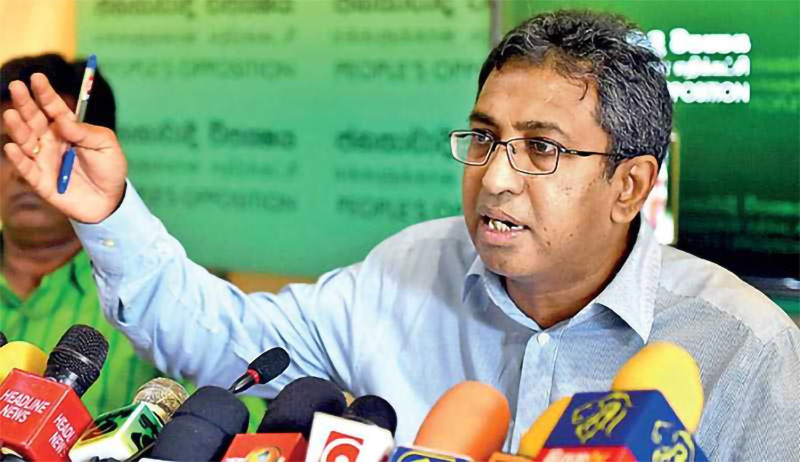
by Chethana Ranathunga and
Yasu-e Karunaratne Edussuriya
A coalition that previously held only three parliamentary seats has achieved a sweeping victory in Sri Lanka’s recent parliamentary elections. The JVP-led NPP coalition now has a two-thirds parliamentary majority. This political shift positions the leftist alliance to implement widespread policy changes, potentially offering the stability that many Sri Lankans have long been yearning for. Yet, Sri Lanka now stands at a critical juncture where the presence of a strong opposition is not merely desirable; it is absolutely essential!
Regardless of which party holds power, unchecked authority poses inherent risks. A vigilant opposition that maintains checks and balances is fundamental. An effective opposition serves to expose legislative loopholes, identify critical areas of concern, and provide a vital check on the majority’s power. As a driving force with 159 seats, the NPP government will steer policy and reform, but to govern effectively, they must have a strong yin to their yang.
An opposition is only as effective as the leadership that guides it. Sri Lanka has a history of opposition parties that have resisted policies and reforms simply for the sake of opposition. Is this the political culture and path we wish to continue? An effective opposition leader holds the government accountable, challenging proposed legislation to protect the interests of the people rather than the party. Such a leader acts as a bridge, channelling public concerns into meaningful political discourse and refining legislative measures to benefit the nation as a whole. Sri Lanka’s democratic future depends not solely on the strength of the ruling coalition but on an empowered opposition ready to engage, challenge, and elevate governance.
On 21 November 2024, Sajith Premadasa was appointed the leader of the opposition. While his political prominence cannot be denied, the question is whether he is the most qualified person for the role? In contrast, de Silva stands out as a compelling alternative for opposition leadership.
Throughout his tenure in Parliament, Dr. de Silva has consistently been a voice of reason, advocating for economic stability, fiscal responsibility, and transparent governance. His contributions to major legislative reforms demonstrate a commitment to policies that prioritise national welfare over partisan gain. His engagement with international bodies, including the International Monetary Fund (IMF), World Bank, and the Asian Development Bank has showcased his ability to navigate complex economic challenges with strategic foresight.
While Premadasa remains a prominent figure, securing 145,611 preferential votes in the most recent elections—more than Dr. de Silva’s 81,473—voter dynamics reveal deeper trends. Unlike many of his colleagues, Dr. de Silva achieved a remarkable 17.72% increase in preferential percentage gain, signalling growing public support. This contrast becomes more striking when considering that many in the SJB.
experienced declines in voter preference, including Premadasa himself, who saw a 9.05% drop.
The data points to a shift in voter sentiment and highlights Dr. de Silva’s appeal as a leader who resonates with evolving public expectations. His ability to secure increased support, even in challenging political climates, displays his potential to lead a strengthened, purpose-driven opposition.
Dr. de Silva also has an impressive academic and career background. He is a highly respected economist and has built a career that spans both the private and public sectors. Educated at Royal College Colombo, Dr. de Silva earned his BS in Business Management from Truman State University in 1988 before completing his MA and PhD in Economics at the University of Missouri in 1993. He also furthered his expertise in social programme evaluation through an executive programme at the Massachusetts Institute of Technology in 2006, as part of the prestigious Eisenhower Fellowship.
Dr. de Silva’s career in economics is distinguished by his tenure at DFCC Bank, where he served as Chief Economist and Treasurer, and his role as a co-founder and Joint Managing Director of The Nielsen Company. His rich experience in both banking and market research has given him a nuanced understanding of economic systems, making him a key figure in shaping policy decisions.
Though Dr de Silva is in the opposition, he has emphasised his commitment to supporting policies that benefit the country, regardless of political affiliation. He has made it clear that his role is not to oppose for the sake of opposition but to contribute constructively to national growth. His leadership approach focuses on ensuring that policies are in the best interest of the people of Sri Lanka.
Further, Dr. de Silva’s economic blueprint for Sri Lanka, which has been updated through three distinct editions, stands as a comprehensive and strategic plan for the country’s growth and development. Each iteration has built upon the last, adapting to the evolving challenges and opportunities facing the nation. The blueprint focuses on key areas such as economic diversification, fiscal discipline, social welfare, and enhancing Sri Lanka’s global competitiveness. His plan offers concrete solutions for boosting sustainable growth, tackling inequality, and ensuring that the benefits of economic progress reach all segments of society.
Dr. de Silva’s constructive approach to governance highlights why he is the ideal candidate to lead the opposition in Sri Lanka. While he holds a position in the opposition, he has consistently supported and actively contributed to positive government policies that promote the country’s long-term stability and development. Notably, Dr. de Silva backed crucial reforms like the Central Bank Act of 2023, which strengthened the independence of the Central Bank by removing the Finance Secretary from its board, as well as the Public Finance Management Act, the Public Debt Management Act, and the Parliamentary Budget Office Act. When the opposition leader Premadasa considered opposing key bills like the Central Bank Act, Dr. de Silva successfully persuaded them to abstain, recognising the vital importance of these reforms for the country’s stability. His support has gone beyond mere endorsement; as Chairman of the Committee on Public Finance (COPF), he has worked alongside the government to refine and improve these laws, offering valuable suggestions to make them even more effective.
Dr. de Silva has also demonstrated foresight in addressing pressing issues such as the fertiliser crisis. Recognising the problem early on, he raised alarms in COPF regarding the government’s decision to lift the ban on chemical fertiliser imports, questioning the potential implications of such a move. His proactive stance in highlighting potential risks, even when it involved challenging government policies, showcases his commitment to the country’s well-being over political rivalry
Dr. de Silva’s leadership as Chairman of the Committee on Public Finance (COPF) has not only demonstrated his exceptional ability as a “doer,” but also highlighted his success in building consensus and driving meaningful reforms across political divides. Under his guidance, COPF has tackled a range of critical issues with determination and a commitment to transparency and accountability. One of the most significant achievements of COPF during his tenure was the investigation into the irregularities surrounding Sri Lanka’s visa outsourcing contract. The decision to bypass competitive bidding, which led to a sharp increase in visa fees from USD 1 to USD 25, was uncovered by COPF. This raised serious concerns over the government’s failure to protect public funds and ensure the best value for money. Dr. de Silva’s insistence on thorough scrutiny ultimately led to a Supreme Court ruling in August 2024, which suspended the controversial contract and restored the previous, more affordable visa system managed by Mobitel.
Another pivotal moment under Dr. de Silva’s leadership was his intervention to reduce milk powder prices. Recognising the undue financial burden placed on Sri Lankans due to high taxes on imported milk, Dr. de Silva pointed out the discrepancy in the government’s handling of local and imported milk powder tariffs. His advocacy for revisiting the tax structure resulted in an overnight reduction in milk prices nationwide, directly benefiting consumers.
Dr. de Silva’s commitment to social issues was also evident in his leadership on alleviating period poverty. Following discussions with civil society organisations post-Budget 2024, Dr. de Silva championed a proposal to provide free sanitary napkins to schoolgirls. His initiative led to the allocation of underutilised funds from the Ministry of Education to create a voucher system, benefiting 800,000 schoolgirls across the country.
These milestones, from exposing visa system corruption to driving significant social change and tackling economic inefficiencies, emphasise his effectiveness in promoting good governance. His work within COPF has not only saved public funds but also ensured that government policies are scrutinised for their impact on the people. His leadership in COPF is a clear demonstration of why he is the right choice to lead the opposition, advocating for a government that serves the people with integrity and transparency.
Outside his work in the Committee on Public Finance, Dr. Harsha De Silva has been instrumental in shaping one of Sri Lanka’s most impactful public health initiatives: the Suwa Seriya Ambulance Service. Established in 2016 following a proposal by Dr. de Silva, Suwa Seriya addresses a critical gap in the country’s healthcare system and has been recognised by the World Bank as one of the world’s most efficient public services. Prior to this initiative,
Sri Lanka lacked an organised ambulance service capable of responding to urgent medical emergencies, especially in rural areas.
Dr. de Silva’s leadership and accomplishments clearly demonstrate that he was the ideal candidate to lead Sri Lanka’s opposition. His record of driving critical reforms as Chairman of the Committee on Public Finance and his instrumental role in establishing the Suwa Seriya Ambulance Service highlight his ability to turn vision into impactful action. Dr. De Silva’s pragmatic approach, focus on transparency, and commitment to the nation’s long-term development made him the strongest, most qualified individual to hold the opposition’s reins.
At a time when Sri Lanka’s political landscape requires a strong, constructive opposition to maintain democratic checks and balances, Dr. de Silva’s leadership is essential. He has shown time and again that his priority is not partisan politics but the welfare of the people. As Sri Lanka’s ruling coalition embarks on sweeping reforms, Dr. de Silva’s ability to challenge, scrutinise, and improve policies will be vital for ensuring accountability and protecting the interests of the public. The country needs a leader like Dr. de Silva in the opposition—someone who will not only hold the government to account but also actively shape policies for a better, more inclusive Sri Lanka.
Chethana Ranatunga has a B.A. Economics (Specialised in Banking and Finance) from the University of Colombo and is reading for her MPP at the University of Oxford (2024-25). She also worked as an Economist at the Interim Parliamentary Budget Office and the Committee of Public Finance Sri Lanka
Yasu-e Karunaratne is a lawyer and economist with a BBA in Business Economics (Special) from the University of Colombo and LLB (London). She also worked as an Economist at the Interim Parliamentary Budget Office and the Committee of Public Finance Sri Lanka.
-
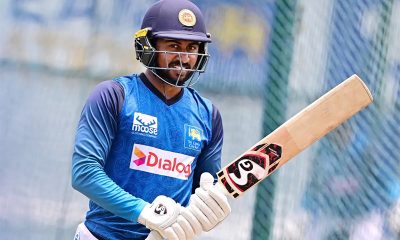
 Sports3 days ago
Sports3 days agoA lot at stake in Sri Lanka – South Africa Tests
-
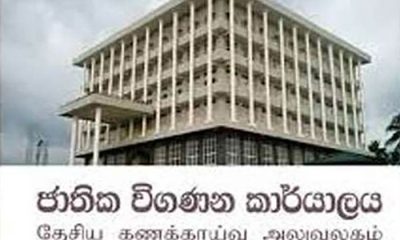
 News7 days ago
News7 days agoAbout 1,000 permits issued to SL migrant workers for electric vehicle imports misused
-
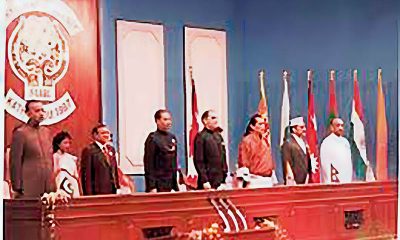
 Features6 days ago
Features6 days agoKathmandu 1987 and Islamabad 1988
-
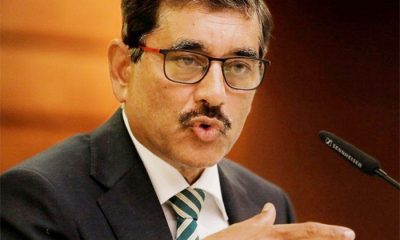
 Business2 days ago
Business2 days agoCurrent deflation situation would not adversely impact economy – CBSL Governor
-

 Features6 days ago
Features6 days agoSri Lankan mannerisms in Ischia, sex in Samoa and Kerala
-
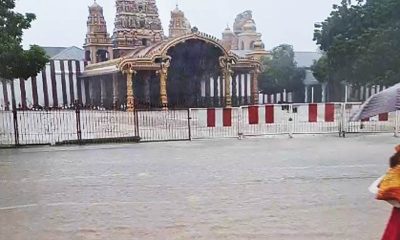
 News6 days ago
News6 days agoSevere flooding in Jaffna displaces thousands
-
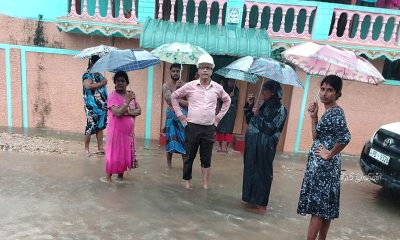
 News7 days ago
News7 days agoTorrential rains play havoc in Jaffna
-

 Editorial6 days ago
Editorial6 days agoThe National List










